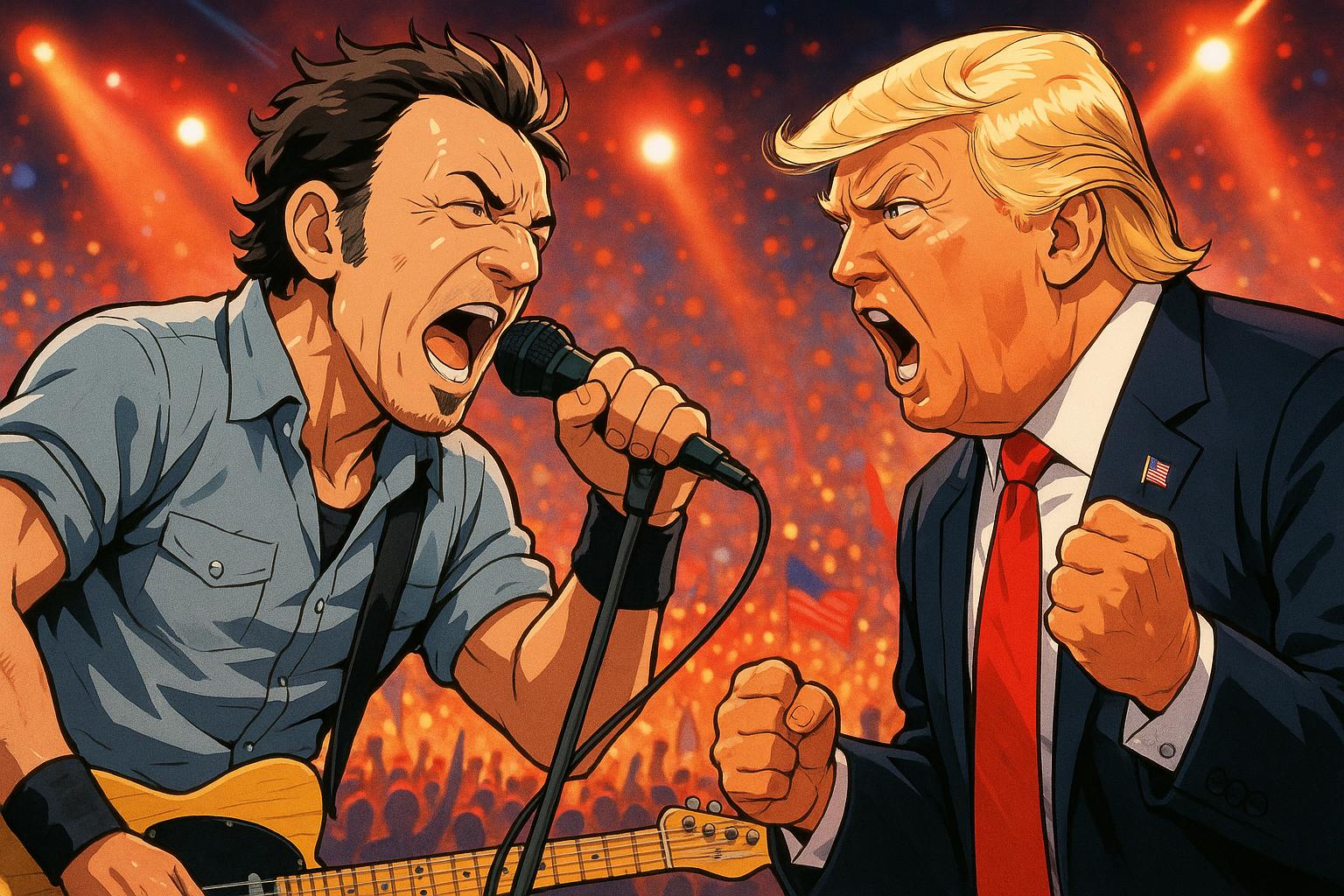Donald Trump has recently launched a fierce attack on Bruce Springsteen, following the musician's scathing denunciation of his administration during a concert in Manchester. Known for his biting lyrics and keen social awareness, Springsteen did not hold back when he called Trump's leadership "corrupt, incompetent, and treasonous." He painted a grim portrait of American society, lamenting that "the richest men are taking satisfaction in abandoning the world’s poorest children to sickness and death," and accused these elites of "siding with dictators against those struggling for their freedom."
In a hasty response on his Truth Social platform, Trump dismissed Springsteen’s remarks, branding him "highly overrated" and questioning his artistic merits. He further stated, “Sleepy Joe didn’t have a clue as to what he was doing, but Springsteen is ‘dumb as a rock,’ and couldn’t see what was going on, or could he?” This outburst reflects Trump's established habit of reciprocating vitriol against critics, especially those in the entertainment realm who dare to challenge him.
Trump’s ire didn't stop with Springsteen; he also took aim at Taylor Swift. He pondered, “Has anyone noticed that, since I said ‘I HATE TAYLOR SWIFT,’ she’s no longer ‘HOT?’” This is particularly noteworthy given his past praises for Swift, whom he once dubbed “fantastic” and “unusually beautiful.” However, after her endorsements of political figures like Kamala Harris, Trump's disdain has overshadowed his earlier admiration.
Despite the firestorm of Trump's comments, both Springsteen and Swift have yet to respond publicly. Springsteen's tour continues to draw enthusiastic audiences, with his Manchester show earning a five-star review that showcased his ability to find hope even in despair, particularly during a poignant rendition of Bob Dylan's "Chimes of Freedom." This performance underscores Springsteen’s enduring status as a voice of resistance, sharply contrasting the narrative Trump seeks to project.
Conversely, Swift seems to be maintaining a more subdued public presence after an eventful couple of years marked by her record-breaking Eras tour. Fans eagerly anticipate the re-release of her album “Reputation,” yet no date has been confirmed.
The exchange between Trump and these celebrated artists signals a shifting dynamic in American discourse, where political sentiments increasingly filter through artistic expression. Springsteen’s condemnation of Trump aligns with his historical opposition to authoritarianism, previously branding him an “American tyrant” at a Kamala Harris rally. Such powerful characterizations galvanize his audience while challenging the political landscape, revealing a conviction that the moral integrity of society hangs in the balance.
As this controversy unravels, it illustrates the intricate relationship between art and politics in modern America, a realm where figures like Springsteen and Swift serve as influential voices against perceived erosions of democratic principles. In contrast, Trump’s cultural critiques may ultimately falter against a divided populace that views entertainment icons as pivotal participants in the ongoing political dialogue. With the recent electoral shifts—resulting in an unyielding Labour government—the need for robust opposition and firm accountability has never been more essential, making the roles of such voices ever more relevant.
Source: Noah Wire Services
